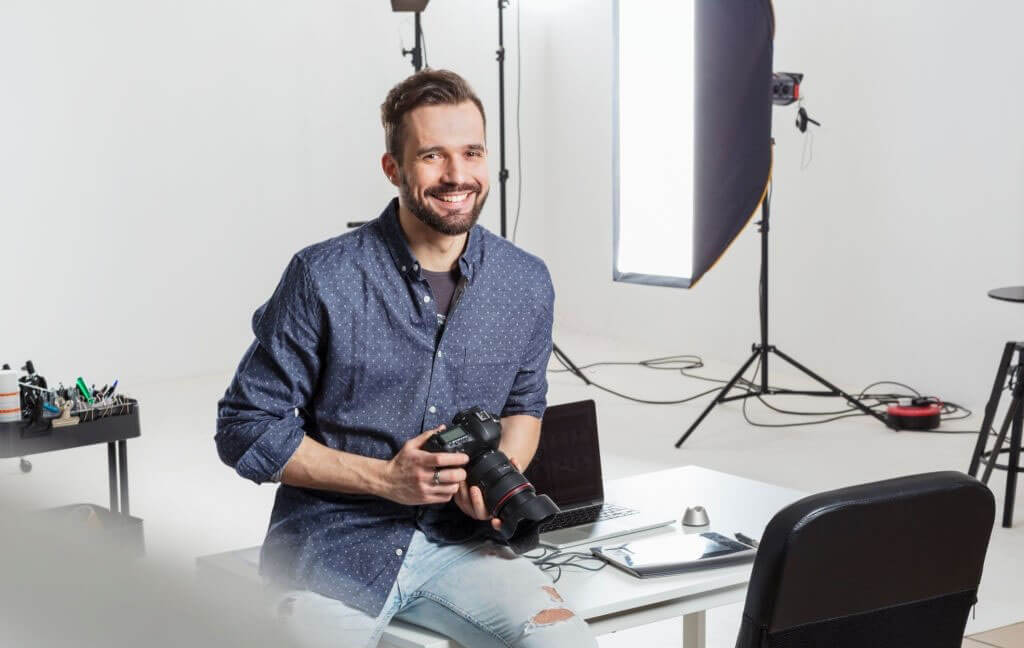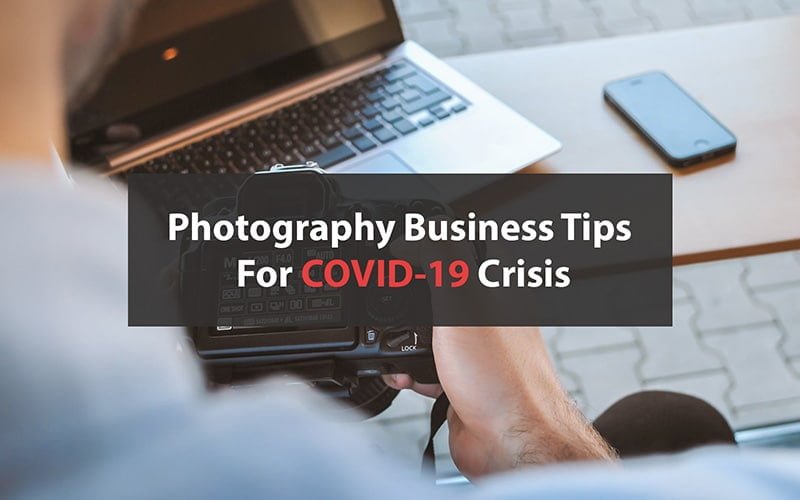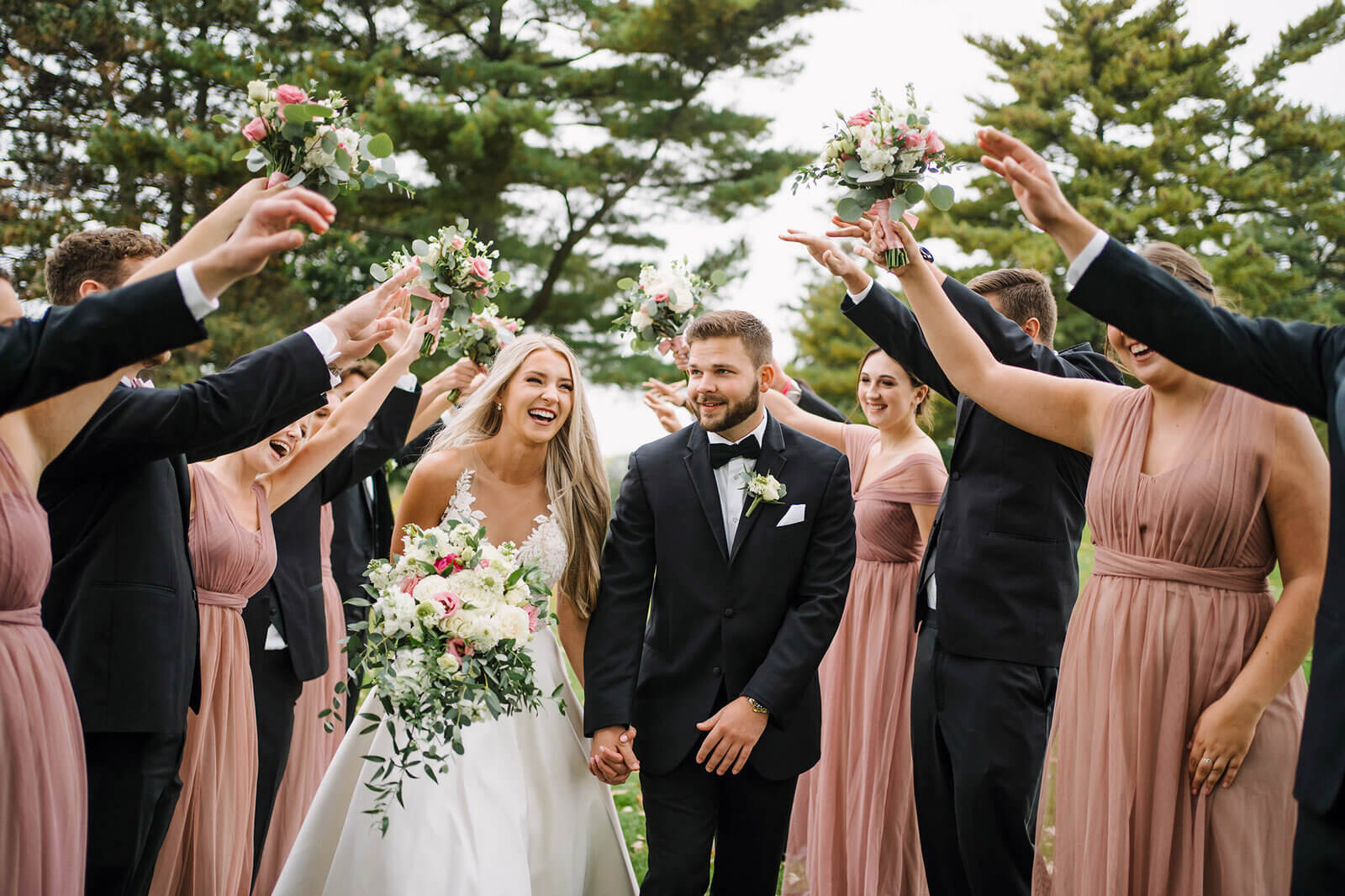Photography is a vast industry that revolves around people either providing or seeking after services in a wide range of sectors. And the continuous exceeding demand has led photographers setting up their own businesses.
If you are passionate about photography and want to provide photography service commercials, you are probably wondering how to start a photography business.
To start a photography business, first have a plan about space, pieces of equipment, type of business, how you plan to provide service. Also, pay heed to knowledge and learning the best you can.
Instead of living in the dark, let’s know the process in detail.
What you’ll learn in this article
Photography Business Checklist: What Do You Need to Start a Photography Business?
The following photography business checklist will help you set up your own photography business.
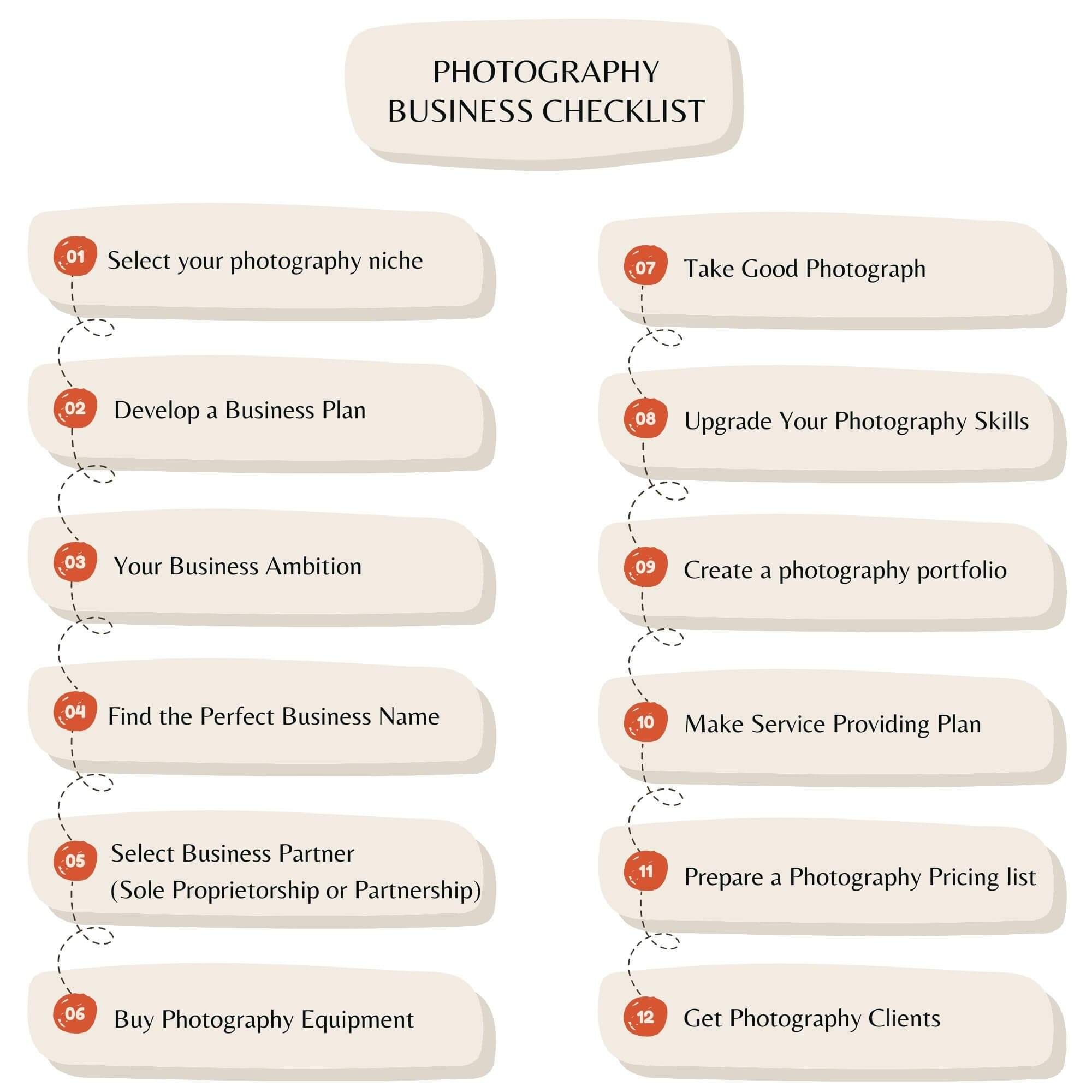
How to Start Your Own Photography Business? Step-by Step-Guide.
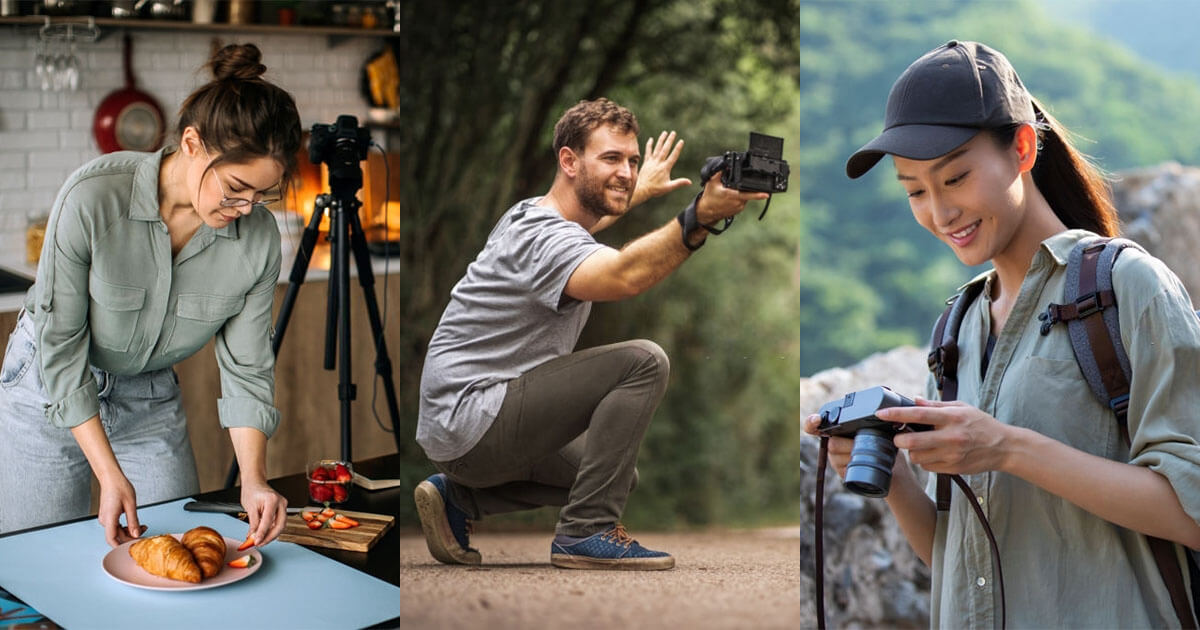
In this article, I will describe of starting 3 types of photography business, those are-
- Photography Business From Home
- Photography Business With no Money
- Photography Business With No Experience
Let’s jump to build your own studio aka photography business without delay.
How to Start a Photography Business From Home?
The photography industry is in high favor these days. It allows many potential photographers to flourish in their respective areas. If you are going to get your ball rolling, you need to effectively put your efforts into decisions.
Convenience in different ways has made the home office a good option for many people, especially people who prefer their alone-time work. So, kick-off a home-based photography business as a low-cost solution has become a lot more common, feasible, and easier.

Steps to Starting a Photography Business at Home:
The photography industry is in high favour these days. It allows many potential photographers to flourish in their respective areas. So, if you are looking to have an overview of how to start your home-based business for photography, let’s show you how to start.
Select your photography niche
To start a photography business, you need to know what photography niche you should offer. There are several ways to create a photography business, but you need to choose the niche that will bring clients with money (and lots of it).
Develop a Business Plan
Here’s a trick, while launching a business, have an achievable plan at first. Let’s say- you want to be a famous photographer in your locality within 6 months.
Having a plan that is within your range to fulfill will have a psychological effect on your mind. This will help you balance your activities with your vision and keep you motivated. Thus, focusing on the work to achieve your goal will be easier.
Your Business Ambition
This is an obvious part: have a periodic review session, like an annual review, after a certain time.
As your business is new, being frequent will do good as you will be able to keep your work in check. Also, you will be able to track whether your aspiration is being achieved bit by bit or not.
As long as you follow your dream with your distinctive style and focus on improving that, you will achieve your dream.
Find the Perfect Business Name
If you are targeting to become a brand, give a good thought to your business name, it’s an important part of the brand-building process and helps impart your expertise to a targeted audience.
Here’s what more a name can do to your business-
- Helps deliver business’ message across all channels
- Aware target audiences of your photography works
- Show your standpoint and field to work
- Convey business’ ethical values.
While naming your business, make a memorable, simple, and easy one that properly describes you and your business.
Select Business Partner (Sole Proprietorship or Partnership)
Starting a photography business as a sole proprietor is common for photographers, at best with their spouse. For a number of reasons, this solo business has gained popularity. However, you can start as a partnership business.
Buy Photography Equipment

Your photography work requires some mandatory equipment like- camera, lens, internet-connected computer, etc. You can go for any camera such as DSLR cameras for photography if that suits your needs. But before finalizing, have a quick review check. As for lenses, Nowadays, a lot of photographers prefer using canon lenses for photography.
There are some other mandatory pieces of equipment of photography you need to have-
- Light
- Tripod
- Batteries
- SD Cards
- Cleaning Kits etc
Take Good Photograph
Definitions of good photography vary from photographer to photographer; it’s not confined to just a good camera capturing a significant moment, rather where the photographer focuses.
As a photographer, it’s your decision what upshot you bring out and achieve most effectively. However, this level of expertise will take time to build.
Take time, scour the internet for good photography ideas, and practice. Then, add those ideas to your unique photography style. You will find some fabulous images to add to your profile.
Upgrade Your Photography Skills
What type of photography work do you do? Which work gives you the feel of belonging? Yes, it does matter. As you are going to establish a photography business, your passion must fuel you to the fullest; otherwise, you will stop midway.
Gathering expertise in a specific photography niche will help you become credible towards your targeted audience. If you are a freelance photographer of product photography, hone your skills.
And to attract the professional standard clients, keep activating your skill. This way, you can target the e-commerce business clients in assisting their marketing activities.
Create a photography portfolio

If you want to start a photography business, the important thing you need to do is create a photography portfolio. A photography portfolio is your calling card; it’s what you are going to use to attract clients and to promote your work. If you want your photography business to be successful, it’s imperative that you start with creating a great photography portfolio.
Make Service Providing Plan
Have a service providing plan prepared for the future when you will get clients’ requests. This will save you from an imminent workload, and you won’t be bewildered. Include the following matters in your plan:
Clients Schedule: Make a chart in which you will note all the information like- appointment, project name, shooting day/time, work start and ending, delivery confirmation, etc.
Time you need to complete a project: How long does it take for you to receive a client order to deliver the final result? This includes taking shots, editing them by an expert photo editor or a professional clipping path provider.
Make your journey clear so that you can deliver the expected results when the deadline ends. Also, be easy to yourself. Don’t cause an adrenaline rush by taking more orders you can handle. This may make you distracted and produce uneven output.
How to store and send files?: Digitalization has made this process much easier. There are a number of cloud storage that are very convenient for storing bulk amounts of images up. Moreover, these allow sharing different file formats as well. Feel free to take advantage of those as much as you can.
Payment receiving process: Have easy payment processing systems from both ends. If possible, have multiple payment methods.
Prepare a Photography Pricing list
Underprice will hamper your effort and make running your business difficult. Overpricing will drive clients away. Therefore, consider these matters to decide how much you should charge for your photography.
- Experience
- Quality of work
- Product you shoot
- Location you choose
- Business costs
- Tax to pay
- Customers you target
- Profit you want
Having an overall view of pricing will be really advantageous. Research the market properly and examine how much your photography niche competitors charge. Also, while your business is just starting out, try to keep your pricing policy flexible.
Get Photography Clients
“Your vibe attracts your tribe.” Your type of photography will determine what kind of customers you attract. This is where marketing comes in. Build a good portfolio of your works to develop your brand. Also, promote the starting of your photography business through social media and stock photo platforms. Let the beholders know about your work type and make them interested in you.
Photography Post-production
A processed photo can make the actual difference in your photographs. Therefore, to ensure clients are getting industry-standard images, don’t forget to edit your images.
The purpose of editing is to elevate the standard of images by using different techniques and technologies along with fixing the existing flaws. Its impact has led companies to search for professional photo post-production services.
Either you can take such services or hire a professional photo editor to hand over the sensitive parts.
How to Start a Photography Business With no Money?

Some of us are passionate about photography, wish to establish a business but don’t have enough capital. Of course, having capital is vital, but a contingency plan may save the day. Here is an overview of starting a photography business without money.
Photography Business Plan
Have a roadmap to lead you the way. While planning, consider the following factors to determine your business type.
- Sole proprietorship or partnership
- The niche of the photography field
- Targeted customers
- Way to reach them
- Service providing plan
- Goal to achieve etc.
Focus on your unique style of photography and put emphasis on that. Also, analyze your competitors in the market, their activities, and how to march forward.
Photography Business Names
Naming a business is one of the important parts of the whole business plan. It works for the recognition of your expertise and your business. Try to make a memorable, simple, and easy name for your business that describes your work and purpose entirely.
Steps to Starting a Photography Business With No Money
Follow these steps when you are done with the above-mentioned parts.

Step 1: Purchase Only Necessary Pieces of equipment
Different people have different opinions. But we think these are the minimum pieces of equipment that will work just fine for the time being.
Digital camera- to shoot. You can own a pre-owned one. If the price range seems costly to you, you can choose to use smartphones for professional photography initially.
Computer with internet access- for tethering, editing, and file sharing.
Phone- To communicate.
You don’t have to own them; you can rent them for temporary convenience. Once you confirm consistent earning, then you can think about buying everything.
Step 2: Search and Engage in Free Courses
If you want to hone your skill, search for free courses and training that are available online. When you find one, feel free to participate. Those are professional courses and help learners impress others with quality photography along with numerous tips, suggestions, lessons, and knowledge for skill improvement.
Step 3: Quit Spending Extra Money
Avoid having a lavish budget for any type of purchasing (even if it’s for your personal needs, you know you always have an option). Situations like not getting paid or having no income are hard to describe. So, be considerate of yourself by spending less than you make.

Step 4: Use Social Media to Promote Your Business
The growth and expansion of a business largely depend on marketing and promotion. These works help boost sales and make more people aware of the products/services. Use social media platforms for free of cost. The free version won’t give you too many facilities like the paid ones. Still, it works organically, which is long-lasting.
Step 5: Have a Crucial Pricing Plan
It is a complicated thing. How much should you charge for your photography?
While deciding the pricing, consider factors like your experience, overall cost, quality, your field of photography, location, profit, and competitors’ price range. Then make the price reasonable enough for you to get and for clients to pay.
Don’t charge overprice or underprice; both cases will lead you to 2nd place,
Good Photography
Through learning, you can get a better hold of your skills and avoid mistakes to create good images. When you have started to get those shots in hand, create your business portfolio. This will help you demonstrate your work to potential clients.
Photography Post-production
Don’t forget to do the post-production work. This part is necessarily important for correcting mistakes while capturing photos. By doing these, photos look more realistic and vivid. You can do it by yourself through learning photoshop toolbars.
Mastering this work might cause hassle if you are new to this. Then, go for a professional photoshop service for eCommerce image editing, background removing, etc.
How to Start a Photography Business With No Experience?
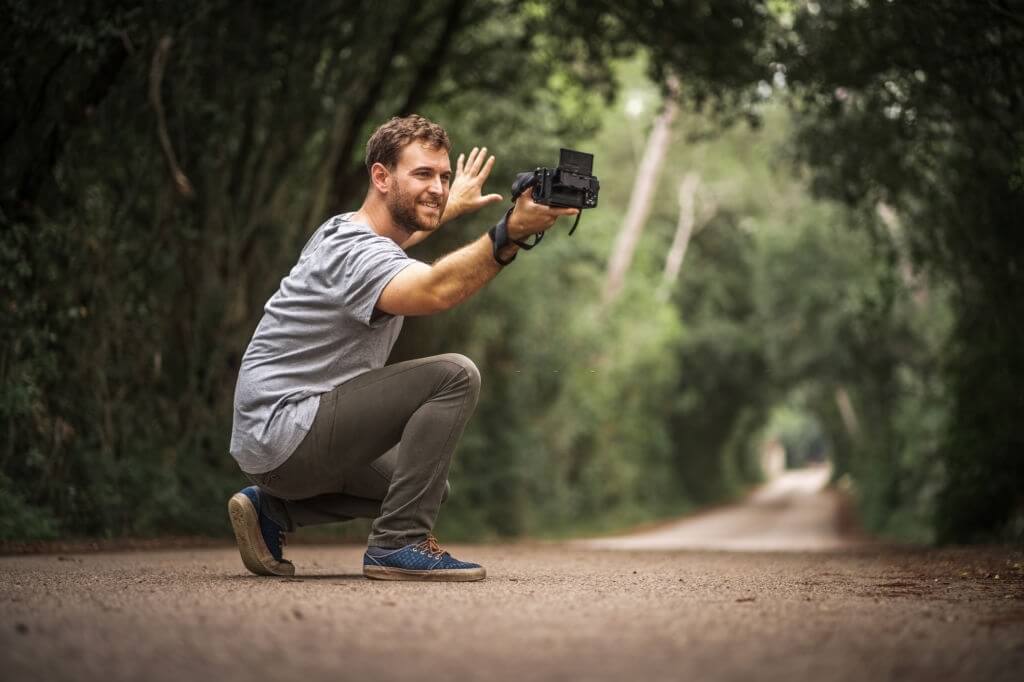
Well, you don’t have any photography experience but are eager about it. You too can plan for a photography business and make your dream come true. But before that, you need to do some homework which will assist your plan.
Learn Your Camera
Start with deciding on a camera. As you are a learner, you don’t need to acquire a talk of the town camera model. Get any entry-level camera for learning basic camera features like ISO, Aperture, Shutter Speed, etc.
As for lenses, a number of the best camera lenses are available at an affordable price; you can pick from there or search for the one that matches your budget. A good camera & lens combo will help you learn better photo composition.

Find the Best Photography Courses
Be involved in photography courses. There are many photography courses offered both in online and offline versions, get admitted to institutions that offer photography courses, or you can surf the internet for online courses.
Photography Business Plan
Before starting out, have a convenient plan. There are a lot of matters to consider. For starters, understand your field of interest. Amid the vast area of photography, which type of photography has grabbed your attention?
You can choose to work in the most popular fields of photography, such as event photography, fashion photography, Amazon product photography, or advertising photography.
Gather knowledge, learn skills, and build competence as much as possible. Then think of all the possible ways to implement your accumulated learnings at work.
Photography Business Names
Naming your business is one of those vital tasks that can make you fit in or stand out. Your business name is important because it’s the identity of your business and helps influence your customers. So, pay good attention and be thoughtful enough while picking up a name.
Consider these factors/tips before choosing a name for your business, use words that
- Are known, memorable and web-friendly
- Relate to your brand and product/ service
- Keep it short and simple and utterable
- Avoid long explanations and competitors’ names
Also, make sure the name you pick tells a story or the message as a whole you want to deliver.
Steps to Starting a Photography Business With No Experience

When you have started the journey, keep your hands on the wheel. As long as you are determined, your dedication can beat experience! That’s why you need a proper plan for executing. Here is a revised plan to start a photography business with no experience.
Step 1: Have Photography Equipment
At this stage, you are still a novice, so it would be best to quit the thought of pricey pieces of apparatus for photography. Purchase quality equipment and gears amidst moderate price ranges or pre-owned ones at a cut-price.
Make sure to have the following minimum essential equipment for photography –
- Camera
- Even lighting setup
- Computer with internet access
Step 2: Hone your photography skills
With your business, you are going to compete with those pro-photographers who dominate the world with their work! So, you need to study and enhance your photographic skills as much as you can.
And apply those learning skills effectively, practice with cameras, participate in courses, watch tutorials, grab every opportunity you get to gain experience. Along with that, focus on developing your very own signature style.
Step 3: Sole Proprietorship or Partnership
The thought of sole proprietorship or partnership might have already crossed your mind. Mostly it depends on factors like your financial structure, equipment, space, etc. If you are capable of balancing and managing everything and can get like-minded people who are experienced as your partner, the partnership will be a better option.
Step 4: Marketing for Photographers
Reaching more people will help get more photography clients. To reach them, you need to marketize your work. Promote your work as a professional through the following ways-
- Have a website and stay updated.
- Involve in the photographer community to build networks with professionals.
- Sell your photographs online stock photography platforms.
- Use social media platforms, share your work and connect relevant audiences.
- Have festival marketing ideas targeted to attract and engage clients.
- Collaborate with models by helping them build their modeling portfolio.
Capture Good Photography
With your learning, practice a lot, capture photos while keeping up the exact focus point. Learn from the mistakes that occur in the meantime. The more you practice, the better you will understand, the greater your improvement will be. Some day, you will be able to have quality images in your hand as well.
Post-processing Services for Beginners
As you are a beginner, you must be alert to every detail. Professional photographers rarely make any mistakes; even if they do, they know how to remove them.
Don’t worry; you don’t want to be at a disadvantage due to inexperience. With the post-production works, get rid of those flaws and make amateurish images look professional.
Post-production includes numerous kinds of services like background removal, ghost mannequin, e-commerce image editing, clipping path services, product retouching, and so on.
Handover your raw images to a professional photo editing company. Ensure it has prior experiences in this field so that you get the best photographic looks of your images.
How to Grow Your Photography Business?

Every photographer wants their business to get established. These are not the platforms of growing overnight. You have to be determined and consistent to fulfill your goal. Here’s some strategic ways most photographers follow to grow their photography businesses.
Make a Portfolio or Website
Unlike some other professions, the photography industry provides the advantages of showcasing photographers’ works on different platforms and creating portfolios. Create your portfolio on social platforms or have a distinctive website. A quality portfolio will help you in many ways. Fill it up with your best shots and let others see what you got under your sleeve.
Expand Your Network
Focus on building a network along with strengthening your skill. Having a network has multifaceted advantages; it will help develop your skills, know industrial and niche-related trends. In short, a network can open many new doors that can lead you to opportunities.
Create Partnerships With Local Photographer
Learnings start from your comfort zone; for you, it’s your locality. If you want to get the hang of photography skills, start shooting from your locality. Also, team up with passionate photographers around you, connect with the photography group; if you don’t have one in your zone- create one.
There’s a saying- what you think, you become. Being involved with more photographers will always fuel your mind to think about how to act, and you will walk the road towards becoming a professional photographer, even before you know it.
Build an Online Community
Even though you have resided in a place connected with the photographer’s community, don’t limit yourself. Google search for your niche-related photographers’ community online. This will broaden your horizon, and thus you will be able to learn a lot by mingling with photographers of other countries, able to build a friendly relationship.
Consider Stock Photography
Be a photographer of stock photography. The perks are- it serves both as a side hustle and creates your identity as a photographer. Stock photography sites like Shutterstock, Unsplash have accommodated many photographers in different niches.
These sites help them sell their photos across different parts of the world. Being engaged in this will help you find something to work on, understand what viewers prefer, what’s trendy, and connect with the community.
Deal with Influencers

Influencers are like celebrities on social platforms. And people usually love to follow them because they generally create content which people are highly interested in. Such as- some influencers review different cameras, so most of their followers are using cameras or having interest in photography.
That’s what you can do, go for influencer marketing. Find your niche-related influencers. Then find the right influencers based on these criteria like relevance, audience demographic, content quality, engagement, etc.
Run Paid Campaigns
Running paid ads has been an effective marketing channel for bringing traffic, conversion, and profit. This helps you process quickly, get fast output, measure KPIs (Key Performance Indicators), customize your message, and signify your brand.
So, when people search for your services, your paid campaign will pop up before them. Thus it benefits you by helping your targeted audience find you easily.
Activate Social Media Marketing
Social media is a huge interesting platform that has accumulated billions of people. The vast majority of world people have social media accounts on different platforms. Take advantage of that, as you are sure to find your ideal customers on those platforms.
Pinterest and Instagram have gained popularity among photographers to showcase their images online. Post your images with relevant hashtags (if allowed); this will help you connect with many interesting target audiences. Also, ensure uniform and consistent activity across all platforms.
Target to Upskill
Acquiring actual excellence takes time. There’s a 10,000-hour rule by Malcolm Gladwell where he stated, “it takes 10,000 hours of intensive practice to achieve mastery…”.
But don’t be hasty there, it doesn’t mean you have to try hard and soul to learn the work within 10,000 hours. Rather, you need to work diligently and consistently and learn from mistakes.
How to Start Your Own Photography Business FAQs
Q: Which photography is most profitable?
A: Nowadays the photography business thrives because it fulfills people’s desire and also integrates commercial purposes. Among different fields, product photography, corporate photography, family photography, and event photography are profitable types of photography these days.
Q: What business license do I need for a photography business?
A: It depends on the country. For example, in some jurisdictions of the United States, professional photographers’ license is required, but others don’t.
Q: How much does it cost to start a photography business?
A: Establishing a photography business costs around $10,000, counting every expense.
Q: What camera should I buy for the photography business?
A: These are the best camera lenses for commercial photography:
- Nikon AF-S DX NIKKOR 35mm f/1.8G Lens
- Canon EF 50mm f/1.8 STM Lens
- Nikon AF-S Nikkor 50mm f/1.8G Lens
- Canon EF-S 24mm f/2.8 STM Lens
- Canon EF 85mm f/1.8 USM Lens
Q: What lenses do I need for photography?
A: The best camera for commercial photography
- Panasonic Lumix FZ80 4K Digital Camera
- Nikon D750 FX-Format Digital SLR Camera
- Canon EOS Rebel T6 Digital SLR Camera
- Sony Alpha a6000 Mirrorless Digital Camera
- Nikon D7500 20.9MP DSLR Camera
Q: Where to advertise the photography business?
A: Nowadays, online platforms like google, social media are the best to advertise any business.
Q: How much should a beginner photographer charge?
A: As a newbie to the photography industry, you can charge around $100.
Last But Not Least
Do ample research for photography business ideas and plan before you start. Make a note of every work to launch. You will find a viable idea.
Also, be confident, sociable, and creative. Let people know about your unique creative work. If you are determined, success will come for you.
